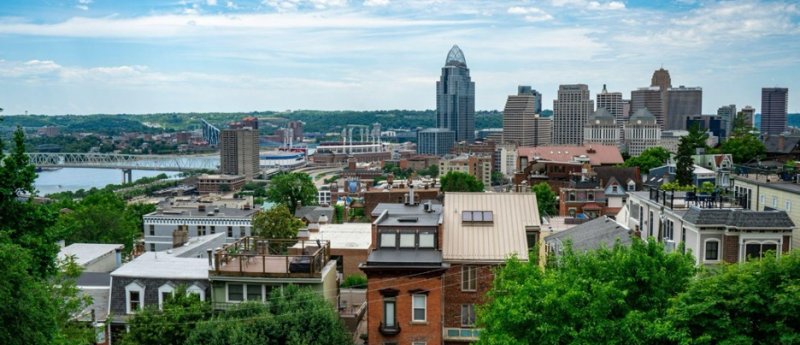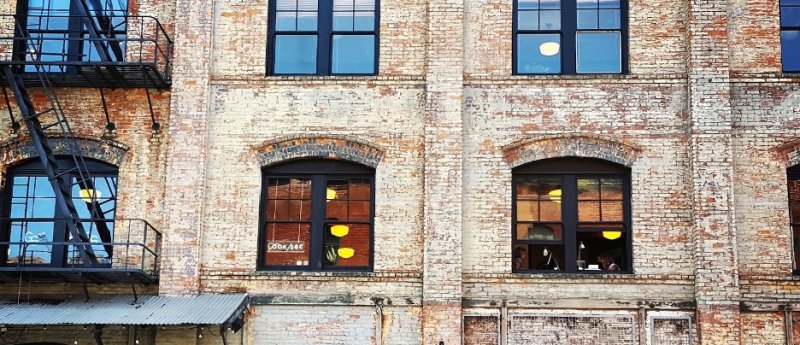 Housing
Housing
-
Turning research into actionDisentangling Zip Code from Destiny: How Cities and States Are Implementing Effective, Evidence-Based Affordable Housing Policy
While safe, stable, and dignified housing is a cornerstone of health and well-being, providing affordable housing for everyone remains a critical challenge for communities across the nation.
July 16, 2024
|P4A Spark
| -
Opening up neighborhoods that offer greater opportunities for social mobility to low- and moderate-income households remains a challenge in the United States. Exclusionary zoning practices act as a barrier to current efforts by restricting the supply of affordable housing.
April 25, 2024
|Evidence
| -
 Turning research into actionCincinnati: Blazing A New Path to Reparative Justice and Racial Healing
Turning research into actionCincinnati: Blazing A New Path to Reparative Justice and Racial HealingThe Center for Community Resilience (CCR) within the George Washington University’s Milken Institute School of Public Health has been working alongside a broad coalition of community groups in Cincinnati, Ohio on a Truth & Equity initiative aimed at dismantling decades of inequitable policies and practices rooted in structural racism.
April 9, 2024
|P4A Spark
| -
Bad housing conditions such as lead exposure, poor insulation, mold, and pests have been linked with elevated risks of physical and mental illnesses.
April 8, 2024
|Evidence
| -
Despite substantial government investment aimed at reducing health disparities, large differences in health persist across geographic and racial lines in the United States. One prominent theory is that these health disparities are driven in part by disparities in the neighborhood environments where people live.
February 26, 2024
|P4A Spark
| -
This comprehensive report unveils the systemic challenges and aspirations of Asheville's Black community through participatory research. It emphasizes the community's perspectives on systemic racism affecting various sectors such as housing, education, employment, healthcare, and the criminal justice system.
February 19, 2024
|Evidence
| -
Turning research into actionEvery Black Voice: Unveiling Asheville's Path to Racial Equity
A deeper, more complex story lies in the picturesque city of Asheville, North Carolina, known for its vibrant arts scene and historic architecture. It's the story of the Black community - a narrative woven with challenges, resilience, and hope. The "Every Black Voice" report, a comprehensive study conducted by the Racial Justice Coalition, reveals Black residents' lived experiences, struggles, and aspirations in Asheville, particularly in light of the city's reparations journey.
February 19, 2024
|P4A Spark
| -
 Turning research into actionGentrification and Opportunity Zones: Are OZs Serving Their Intended Purpose?
Turning research into actionGentrification and Opportunity Zones: Are OZs Serving Their Intended Purpose?Opportunity Zones (OZs) are a government strategy introduced in 2017 to attract increased investment in low-investment census tracts. But are low- to middle-income neighborhoods being elevated and integrated, or are OZs contributing to the darker side of gentrification: rising taxes and neighborhood displacement? Are Opportunity Zones achieving their purpose? New research suggests that they are not.
February 14, 2024
|P4A Spark
| -
Using data from a unique survey of small-scale landlords who owned residential, non-owner occupied units in Pittsburgh, this study provides experimental evidence for the potential effectiveness of an asset-framing approach to increasing landlords’ participation in the City of Pittsburgh’s Mobility Voucher program.
February 6, 2024
|Evidence
| -
Many cities are grappling with the complexities of neighborhood change, gentrification, and shifting geographies of racially segregated poverty. One of the greatest policy challenges is how to support residents to be able to stay in place, and, even more difficult, how to return to the neighborhood after it’s begun to gentrify.
December 13, 2023
|Evidence
| -
Housing credit inflows are a substantial contributor to economic opportunity and vitality in a community. Due to historic inequities in housing policy and lending practices, mortgage capital can often be scarce in neighborhoods whose residents predominantly belong to racial and ethnic minority groups.
August 31, 2023
|Evidence
| -
This post was originally published on The Stoop, The NYU Furman Center blog.
August 18, 2023
|P4A Spark
|